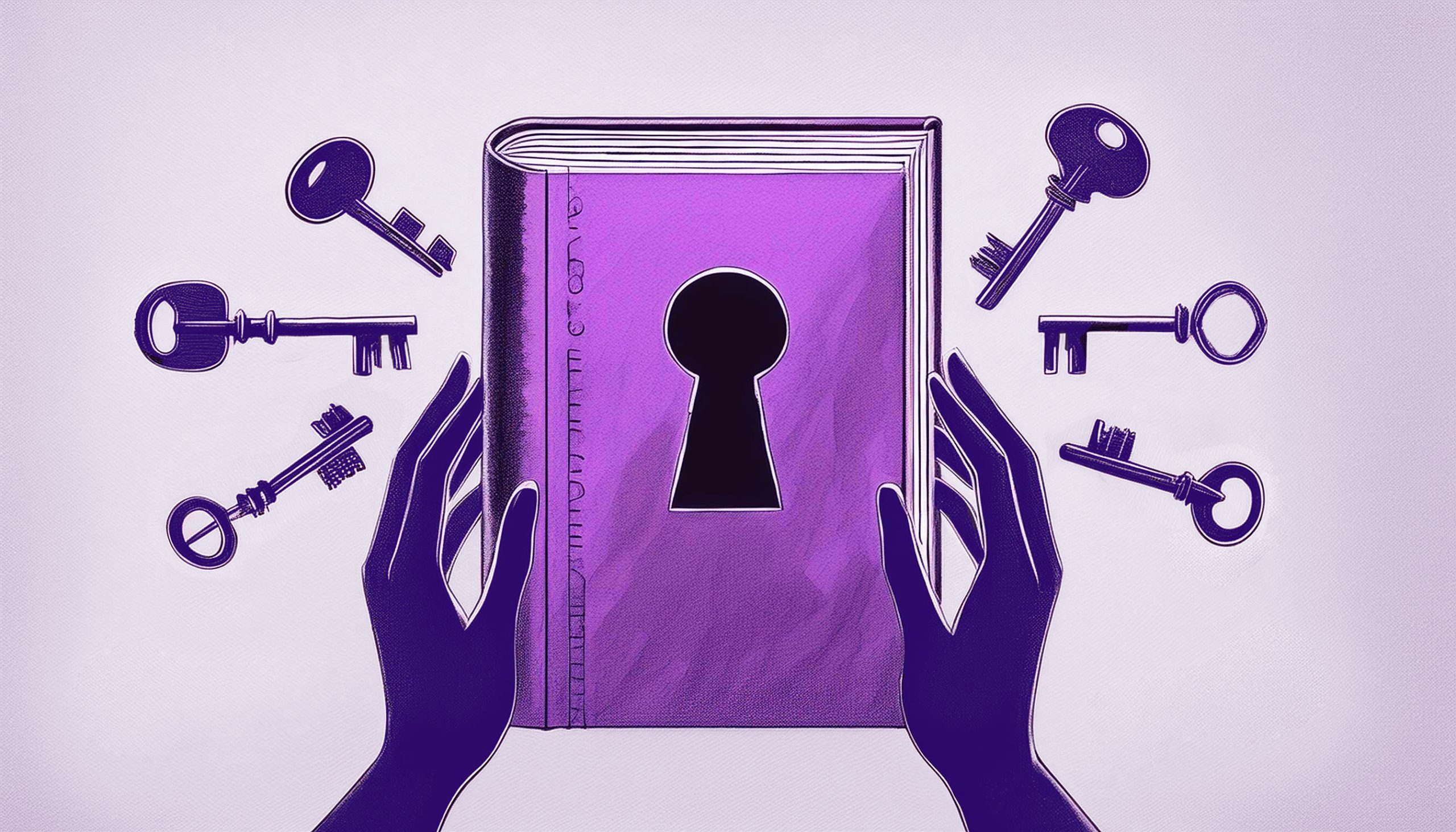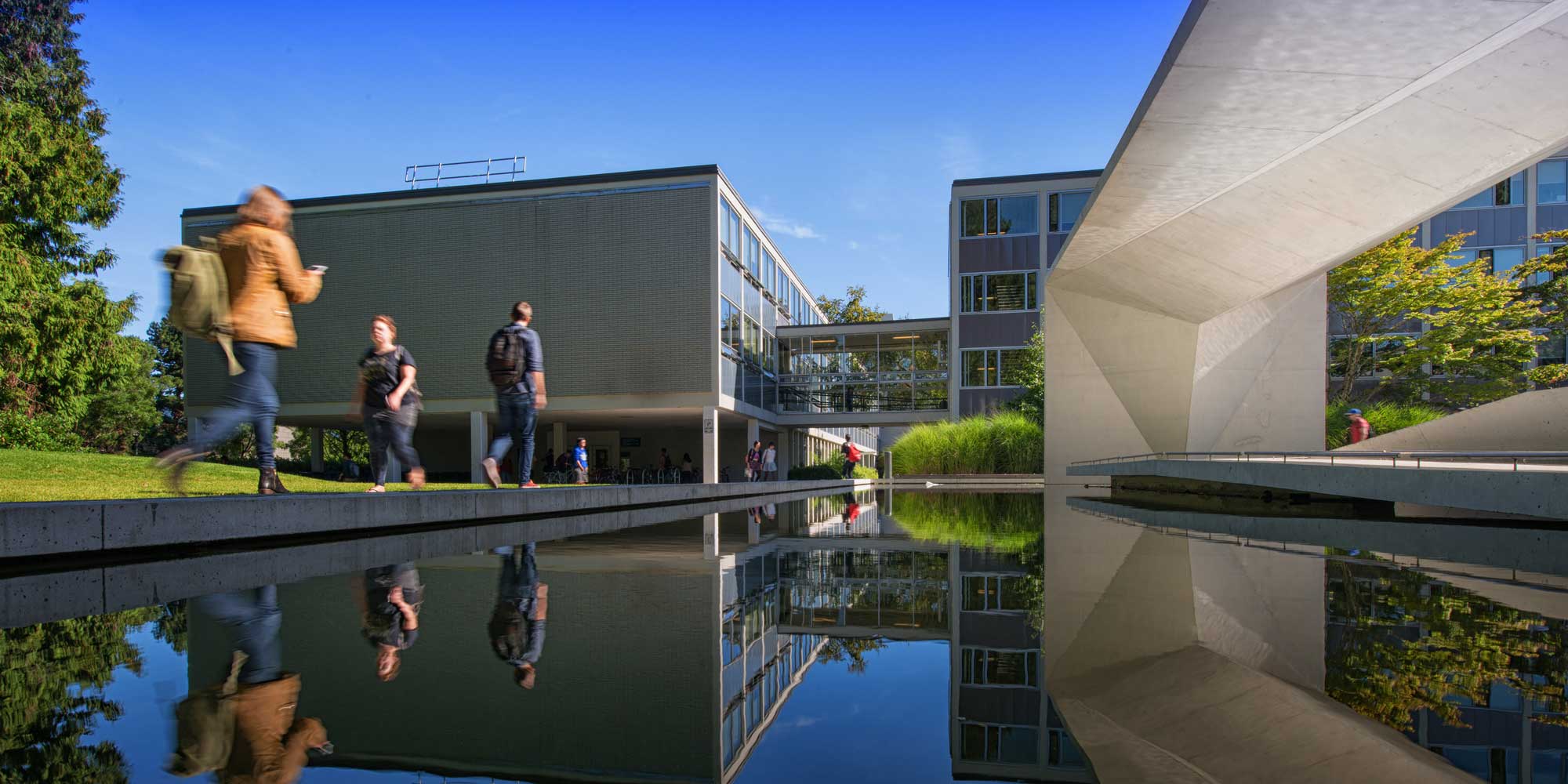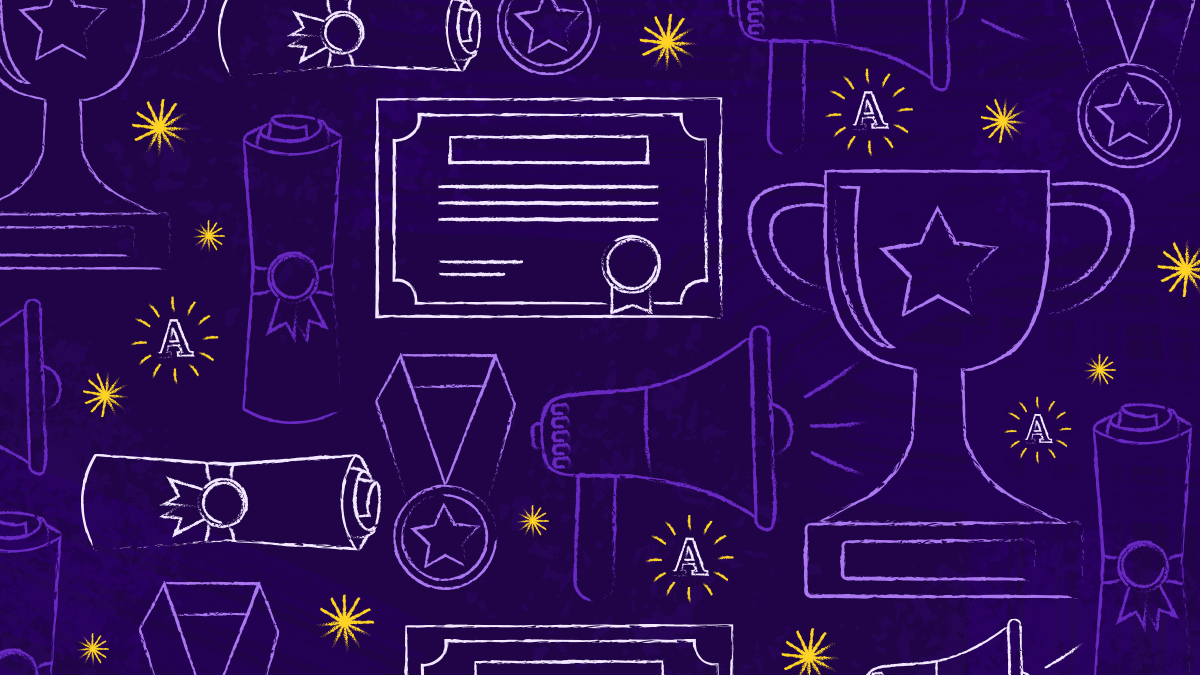

This feature image was generated with the assistance of artificial intelligence.
UBC Arts students Emma Li, Golsa, Manjot Mangat, and Tanya* crafted an inspiring curriculum package that champions academic freedom on a global scale. By highlighting the contributions and efforts of scholars at risk, this tool advocates for intellectual pursuits across borders and underscores the importance of academic freedom in fostering knowledge and societal advancement.
The Scholars in Prison co-curricular opportunity is a collaboration between the Human Rights Collective (HRC) and Scholars at Risk (SAR) that allows students to engage in human rights reporting and analysis. This project enables students to work in teams to gather comprehensive information on imprisoned scholars both locally and globally.
“Sharing this information with the larger group fosters discussions on human rights violations, positionality, and the diverse factors influencing perspectives on academic freedom. More importantly, it encourages us to critically reflect on our roles as learners and activists, questioning how research is conducted and what is considered valid. This project aligns with the HRC and SAR goals by promoting human rights awareness, encouraging active participation in advocacy, and fostering a deeper understanding of the global challenges to academic freedom,” says Manjot.
Engagementships like Scholars in Prison promote unique interdisciplinary work that combines academia and activism. “The Scholars in Prison project furthers this by engaging faculty and students to advocate for imprisoned colleagues. It is through these opportunities, that we, as students, learn about our own positionality as scholars, about our understanding of academia within the perceived environment, and how to implement knowledge to advance human rights,” says Tosya.
The development of the curriculum package is rooted in the mission to protect and promote the work of imprisoned scholars and their right to academic freedom, making students reflect on how research is achieved and recognized. “In a similar sense, we’ve focused on deriving an informed activism that seeks to ‘bear witness’ in the world, which begins with a behavior change, manifesting into a responsibility that enacts change, leading to a mentality that prevents forgetting,” Emma adds.
“Our mission as a cohort is to allow these scholar cases to transcend the UBC HRC and SAR co-curricular engagement and into the broader UBC community’s classrooms. The work continues on behalf of the many imprisoned or endangered scholars still facing unjust sentences and censorship today. We believe students and the university have a responsibility to advocate for academic freedom worldwide.”
*To protect the privacy preference of the student, we respectfully refer to them using the pseudonym Tanya.
What inspired the idea of developing a curriculum as a form of activism? Can you describe the process of creating this curriculum package?
Emma: Our idea for developing a curriculum as a form of activism was inspired by last year’s advocacy efforts by the 2022-2023 SAR cohort. We focused our advocacy on the UBC campus, a place where we felt we could have a greater impact. During the 2022-2023 Engagementship, two groups advocating for G.N Saibaba of India and Ilham Tohti of China came together to work alongside the UBC Bookstore and Library to create a “banned books” display. This showcase allowed UBC students to learn, engage, and read about the different experiences of these scholars, while also uplifting their work. In the 2023-2024 year, our cohort was interested in continuing this campus-based advocacy by investing in a more robust plan to implement scholar cases into different classroom spaces. What better way to advocate for those who no longer have a voice than to spotlight their missions in meaningful spaces? With scholars and academia, isn’t UBC the perfect campus to spearhead our campaign for their work and teachings?
We faced tremendous barriers. As students, our networks included other students and not a wide reach of faculty, staff, and instructors. We didn’t know if anyone would see our pitch as a valuable asset to their courses or aligned with their teaching objectives. Emailing dozens of professors and TAs, our group had very little luck in receiving the attention of instructors given their busy schedules and already-established course curriculums. In other words, our reach to the target audience was limited because we’re just students with small networks. Over time, we realized that UBC has a large network of faculty and staff newsletters that go out to our exact target audience. Although we had hit a plateau in our efforts, this discovery encouraged us.
In the spring of 2024, we learned that two of our scholars, G.N Saibaba from India, and Niloufar Bayani from Iran, were both acquitted and pardoned after years of imprisonment. This event empowered us to push onward despite our feelings of discouragement. As students, it can be hard to feel like our advocacy matters. However, the news of their releases reminded us that our work is a part of a much greater story.
How do you envision the curriculum package being used by UBC faculty members?
Manjot: Integrating the curriculum into UBC professors’ course materials enriches the educational experience and invites a broader audience of students and faculty to engage deeply with the critical work of wrongfully imprisoned scholars and the broader conversation of academic freedom. We envision professors incorporating the works and cases of scholars like G.N. Saibaba and Ilham Tohti, fostering discussions that invite everyone to explore the complexities of academic freedom and raise awareness of these cases. This integration may also inspire new forms of advocacy within our academic community, empowering students to take action and support causes aligned with principles of justice and human rights.
We offer detailed overviews of each case and relevant articles that explore both the specific circumstances and the broader implications for academic freedom. Additionally, we suggest in-class activities and discussion questions to engage deeply with these topics. This structured approach aims to support professors in effectively integrating the curriculum, despite their busy schedules and demanding responsibilities.
Professors and TAs are encouraged to personalize and innovate their approaches to discussing these cases and exploring academic freedom within their disciplines. Our primary goal is to foster an inclusive environment for these critical conversations, encouraging diverse perspectives from both instructors and students. By embracing this collaborative approach, we aim to empower the UBC community to actively engage with global human rights issues, contributing to a more informed and socially aware academic environment.
“As members of the UBC community, we benefit from the privilege of academic freedom, yet it's important to recognize that this privilege is not universal.”
What are some key takeaways from your work on cases involving scholars from China, Belarus, India, Egypt, and Iran?
Tanya: The work we did for scholars at risk was extraordinarily rewarding and yet emotionally intense. Learning about each scholar’s case, we witnessed the rampant human rights violations, false imprisonment, and wrongful convictions scholars endure solely for their academic work. As someone who worked on the Egypt cases for Patrick Zaki and Ahmed Samir Santawy, we were able to see the shift in each case, from disappearance, imprisonment, and court trials to conditional release, and even the full release of Patrick Zaki back to his university town in Italy.
During our Advocacy Days trip to Washington, D.C., we were able to communicate the predicament of our scholar’s cases with US representatives and had the opportunity to meet Patrick Zaki on Zoom, facilitated by an Egyptian-American human rights advocate. Zaki offered a poignant glimpse into his restricted life, barred from holding a bank account, working, or leaving the country to resume his studies. But amidst all of this, Zaki maintained his resilience with the unwavering hope of one day continuing his studies despite his mistreatment. Zaki’s eventual return to Bologna, where he can now live freely, underscored the impact of global activism and sustained attention.
Working on these cases was a challenge because of the constant uncertainty of each scholar’s future. There were many moments of anxiety before court case dates and in the reveal of the court rulings, which often subjected the scholars to prolonged imprisonment.
“However, amongst these stressors were moments of celebration. Some of the most gratifying moments were not only the shifts in the predicament of the scholar’s case, but also in seeing the unity among people all over the world, fighting for the rights of those wrongfully imprisoned.”
How can the UBC community, including students, staff, and faculty, get involved in supporting the Scholars at Risk and the Scholars in Prison project?
Golsa: Students can apply to join the two-term engagementship and engage in advocacy for the freedom of wrongfully convicted scholars internationally. Faculty and staff can reach out to UBC’s Human Rights Collective and Office of Regional & International Community Engagement (ORICE) to learn more about how to get involved with the project. We highly encourage faculty members to continue engaging with topics such as academic freedom and promoting student advocacy in supporting this project. Professors and TAs can also incorporate our curated resource package into their curriculum to spread awareness of academic freedom. Additionally, the best way to support the initiative is to support the advocacy conducted by the students as part of the engagementship! Keep an eye out on the UBC Students for SAR Instagram account for events, petitions, news, and opportunities for support.
If you’re interested in learning more or getting involved in advocating for academic freedom, whether professor or student, read SAR’s Free to Think 2023 report. The Scholars at Risk Network releases annual Free to Think reports which detail the monitoring trends of academic freedom attacks to raise awareness for and promote protections for the right of academic freedom. These reports can offer context to real-world challenges and threats scholars face in pursuit of non-censorship in academia in conducting advocacy for academic freedom. Connecting with UBC’s Scholars at Risk project can connect you with a community of academic freedom advocates and amplify collective action.
“As a higher education institution, UBC has the power to support faculty and students in their academic pursuits without fear of censorship and can encourage diverse academic discourse through policies and supporting organizations like Scholars At Risk.”


